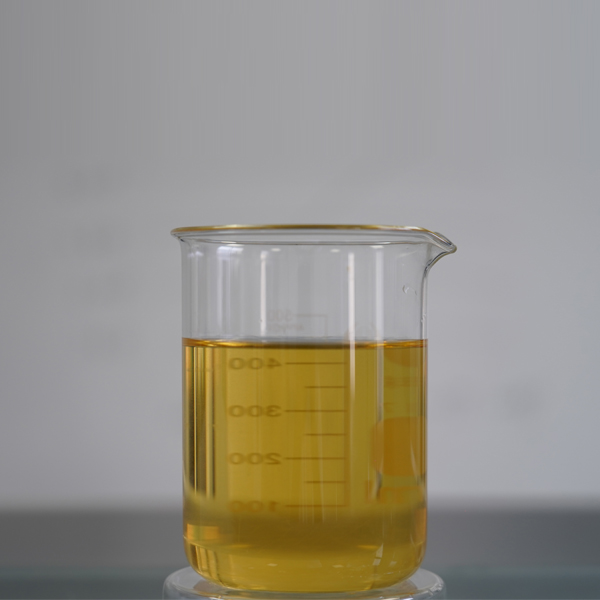
News
Jul . 11, 2024 07:53 Back to list
A comprehensive list of essential micronutrients for healthy plant growth and development
A high quality list of micronutrients for plants is essential for promoting healthy growth and development. Micronutrients are essential elements required by plants in small quantities, but are crucial for various physiological processes. Without an adequate supply of micronutrients, plants can struggle to reach their full potential and may exhibit signs of deficiency.
One of the most important micronutrients for plants is iron. Iron is essential for chlorophyll synthesis, which is key for photosynthesis. A lack of iron can lead to chlorosis, where leaves turn yellow due to the lack of chlorophyll production. To prevent iron deficiency, it is important to ensure that plants have access to iron-rich soils or are supplemented with iron through fertilizers.
Another vital micronutrient for plant growth is manganese. Manganese plays a critical role in various enzymatic reactions within plants, particularly in the process of photosynthesis. A lack of manganese can lead to stunted growth and poor root development. To avoid manganese deficiency, it is important to ensure that plants receive a sufficient supply of manganese through the soil or fertilizers.
Zinc is another micronutrient that is essential for plant growth. Zinc is important for enzyme activation and protein synthesis in plants. Without enough zinc, plants may exhibit symptoms such as stunted growth, leaf discoloration, and reduced fruit development

high quality list of micronutrients for plants. To prevent zinc deficiency, it is important to provide plants with a steady supply of zinc through the soil or fertilizers. Copper is also a crucial micronutrient for plants. Copper is important for various enzymatic reactions in plants, including those involved in respiration and lignin synthesis. A lack of copper can lead to reduced plant growth, wilting, and leaf curling. To avoid copper deficiency, it is important to ensure that plants have access to copper-rich soils or are supplemented with copper through fertilizers. Boron is another essential micronutrient for plant growth. Boron plays a key role in cell wall formation, pollen germination, and fruit development. A deficiency in boron can lead to poor root growth, flower abortion, and hollow fruit. To prevent boron deficiency, it is important to provide plants with a consistent supply of boron through the soil or fertilizers. In conclusion, a high quality list of micronutrients is essential for promoting healthy growth and development in plants. By ensuring that plants have access to essential micronutrients such as iron, manganese, zinc, copper, and boron, gardeners and farmers can help their plants reach their full potential and thrive. Regular monitoring of micronutrient levels and supplementation when necessary can help prevent deficiencies and promote optimal plant health.

high quality list of micronutrients for plants. To prevent zinc deficiency, it is important to provide plants with a steady supply of zinc through the soil or fertilizers. Copper is also a crucial micronutrient for plants. Copper is important for various enzymatic reactions in plants, including those involved in respiration and lignin synthesis. A lack of copper can lead to reduced plant growth, wilting, and leaf curling. To avoid copper deficiency, it is important to ensure that plants have access to copper-rich soils or are supplemented with copper through fertilizers. Boron is another essential micronutrient for plant growth. Boron plays a key role in cell wall formation, pollen germination, and fruit development. A deficiency in boron can lead to poor root growth, flower abortion, and hollow fruit. To prevent boron deficiency, it is important to provide plants with a consistent supply of boron through the soil or fertilizers. In conclusion, a high quality list of micronutrients is essential for promoting healthy growth and development in plants. By ensuring that plants have access to essential micronutrients such as iron, manganese, zinc, copper, and boron, gardeners and farmers can help their plants reach their full potential and thrive. Regular monitoring of micronutrient levels and supplementation when necessary can help prevent deficiencies and promote optimal plant health.
Latest news
-
Polyaspartic Acid Salts in Agricultural Fertilizers: A Sustainable Solution
NewsJul.21,2025
-
OEM Chelating Agent Preservative Supplier & Manufacturer High-Quality Customized Solutions
NewsJul.08,2025
-
OEM Potassium Chelating Agent Manufacturer - Custom Potassium Oxalate & Citrate Solutions
NewsJul.08,2025
-
OEM Pentasodium DTPA Chelating Agent Supplier & Manufacturer High Purity & Cost-Effective Solutions
NewsJul.08,2025
-
High-Efficiency Chelated Trace Elements Fertilizer Bulk Supplier & Manufacturer Quotes
NewsJul.07,2025
-
High Quality K Formation for a Chelating Agent – Reliable Manufacturer & Supplier
NewsJul.07,2025
